Contents
- 1. Introduction
- 2. Why CRM is No Longer Optional for Startups and Small Businesses in SG & MY
- 3. Must-Have Features in CRM Tools for Startups
- 4. Top 3 CRM Tools for Startups and Small Businesses
- 5. Common CRM Mistakes Startups Should Avoid
- 6. How to Choose the Right CRM Tool for Your Startup
- 7. Conclusion
1. Introduction
For startups and small businesses in Singapore and Malaysia, managing customer relationships is one of the biggest challenges. Whether you run a one-man consultancy, a small e-commerce store, or a service business, keeping track of leads, following up on enquiries, and managing your sales pipeline manually can quickly become overwhelming. This is why adopting the right CRM tools for startups is no longer optional but essential.
A good CRM (Customer Relationship Management) system acts as your silent team member—organizing contacts, automating communications, and keeping sales processes smooth without needing to hire more staff. According to a Salesforce report, businesses that implement CRM see an average increase in sales by up to 29%. This makes CRM not just a tool for large corporations but a powerful ally for small businesses aiming for growth.
In this article, we explore why CRM tools for startups are crucial, what features matter most, and recommend three of the best CRM solutions that are affordable, easy to use, and suitable for businesses in Singapore and Malaysia.
2. Why CRM is No Longer Optional for Startups and Small Businesses in SG & MY
For startups and small businesses in Singapore and Malaysia, staying competitive in the digital age comes with unique challenges. Many of these businesses operate with limited manpower and tight budgets. The owner often wears multiple hats—handling sales, marketing, customer service, and even accounting—all at once. This multitasking can lead to disorganized customer data, missed opportunities, and lost sales.
In a fast-paced market where consumers expect quick responses and personalized service, being slow to follow up or forgetting a customer request can make or break a sale. A potential customer who doesn’t get a timely reply is likely to turn to a competitor. The pressure to deliver excellent service with minimal resources is high.
This is where CRM tools for startups become essential. They help small business owners automate routine tasks like follow-up emails, appointment scheduling, and sales tracking—saving time and reducing human error. CRM systems also consolidate all customer interactions into one platform, making it easy to access client histories and personalize communication.
According to a Nucleus Research study, businesses earn an average return of $8.71 for every dollar invested in CRM. For startups in Singapore and Malaysia where cost-effectiveness matters, this potential ROI makes CRM a smart and necessary investment. Ultimately, adopting CRM tools for startups is not about luxury—it’s about survival and sustainable growth in a competitive market.
3. Must-Have Features in CRM Tools for Startups
When selecting CRM tools for startups, it’s important to focus on features that make your life easier rather than more complicated. As a small business owner, you want tools that can help you get organized, save time, and manage customer relationships effectively—all without needing a full IT department or technical know-how.
1. User-Friendly Interface
First and foremost, the CRM should have a user-friendly interface. This means you can get started quickly without needing to attend complicated training sessions. Most startup founders juggle multiple roles daily, so ease of use is non-negotiable.
2. Mobile Access
Another essential feature is mobile access. In Singapore and Malaysia, many solopreneurs work from their phones while meeting clients or managing operations on the move. A CRM that comes with a reliable mobile app allows you to track leads, view customer details, and send follow-ups anytime, anywhere.
3. WhatsApp/Email/SMS Integration
Incorporating WhatsApp, Email, and SMS integration is also a big plus. These are the most commonly used communication channels in both countries, and having them linked directly into your CRM allows for faster, more personal customer interactions without switching between platforms.
4. Lead Tracking & Sales Pipeline Management
For managing your pipeline, the CRM should offer lead tracking and sales pipeline management. This feature lets you visually follow a potential customer’s journey—from the first contact to closing the sale—so you don’t miss out on any opportunity.
5. Affordable Pricing/Freemium Plans
Affordability matters to startups. Look for CRMs offering freemium plans or affordable starter packages. This allows you to try the system risk-free before committing financially. Over time, as your business grows, you can scale up to paid versions for added functionality.
6. Local Currency/Language Options
Local relevance is also important. CRMs that support local currency and language options make invoicing, reporting, and communication smoother with your customer base in Singapore and Malaysia.
7. Data Privacy Compliance (PDPA)
Do not forget about data privacy and PDPA compliance. Customer data protection is crucial, and using a CRM that helps you stay compliant with local regulations avoids potential legal issues.
By ensuring these features are present, CRM tools for startups can truly become a game-changing investment for any small business in Singapore and Malaysia.
Real-World Example: A Local Small Business Success Story
Consider “Bake Bliss,” a home-based bakery in Singapore. Initially, owner Sarah manually tracked orders through WhatsApp and Excel sheets. After adopting HubSpot CRM’s free version, Sarah automated her order confirmations, scheduled customer follow-ups, and created a simple mailing list for promotions. Within three months, repeat orders grew by 20%, and she saved nearly 10 hours a week in admin work.
Another example is “Tech Consult MY,” a freelance IT consultancy in Kuala Lumpur. Using Zoho CRM, the owner set up automated client onboarding emails and tracked project milestones. This allowed better client satisfaction and timely follow-ups, leading to increased referrals.
These examples highlight how CRM tools for startups can drive real growth in SG & MY.
4. Top 3 CRM Tools for Startups and Small Businesses
Finding the right CRM tools for startups can feel overwhelming with so many options available. To make it easier, here are the top three CRM tools that are perfect for small businesses and startups in Singapore and Malaysia. These tools are affordable, easy to use, and come with features that matter most to solopreneurs and small teams.
1. HubSpot CRM (Free Version)
Best For: Solopreneurs and startups who are new to using CRM systems.
Why Choose HubSpot CRM?
- Completely Free Plan: Ideal for startups with no CRM budget.
- Simple and User-Friendly Interface: Easy setup and navigation, even for beginners.
- Contact Management: Organize and track every customer or lead in one place.
- Email Tools: Send marketing emails and track their performance.
- Task Automation: Set reminders for follow-ups and tasks.
- Mobile App Available: Manage your business on the go.
- WhatsApp Integration: Possible via third-party tools.
Limitations: Advanced features like marketing automation and analytics are only available in paid plans.
2. Zoho CRM
Best For: Small teams that need flexibility and customization.
Why Choose Zoho CRM?
- Affordable Pricing: Offers a free plan and low-cost paid plans.
- Multichannel Communication: Manage emails, calls, social media, and live chats from one platform.
- Automation Tools: Automate routine tasks like follow-ups, lead scoring, and sales tracking.
- Analytics and Reporting: Generate insightful reports to guide your business decisions.
- Mobile App Available: Manage leads and deals anywhere.
- WhatsApp Integration: Direct and third-party options.
Limitations: Slight learning curve, especially when setting up customized workflows.
3. Freshsales by Freshworks
Best For: Startups looking for simplicity and built-in telephony features.
Why Choose Freshsales?
- Built-In Phone and Email Integration: Make calls or send emails directly from the platform.
- AI-Based Lead Scoring: Helps you focus on the most promising leads.
- Sales Pipeline Management: Visualize deals and track progress easily.
- User-Friendly Dashboard: Easy to understand and manage, even for beginners.
- Mobile App Available: Stay connected while on the move.
- WhatsApp Integration: Available via integrations.
Limitations: Some advanced features require higher-tier paid plans.
By choosing any of these CRM tools for startups, small business owners in Singapore and Malaysia can streamline their sales processes, improve customer relationships, and grow their businesses efficiently without breaking the bank.
5. Common CRM Mistakes Startups Should Avoid
While CRM tools for startups offer numerous benefits, small business owners often make mistakes that reduce the effectiveness of these tools. Avoiding these pitfalls can help ensure you get the most value from your CRM investment.

1. Overcomplicating the Setup
Many startups try to implement every feature at once, which can overwhelm the team and make the system harder to use. Start simple. Set up contact management and basic follow-up reminders first before exploring more complex features.
2. Ignoring Mobile Functionality
Small business owners in Singapore and Malaysia are frequently on the move. Neglecting the mobile app means missing out on managing leads or closing deals anytime, anywhere. Ensure your CRM app is set up on your phone and used regularly.
3. Failing to Keep Customer Data Updated
A CRM is only as good as the information it holds. Outdated or incomplete contact details can result in lost sales opportunities and ineffective marketing campaigns. Make it a habit to update customer records consistently.
4. Not Leveraging Automation Features
Many startups ignore useful automation tools like automatic email sequences or task reminders. These features save time and ensure no lead falls through the cracks. Take time to set up simple automation that can handle repetitive tasks for you.
By avoiding these common mistakes, startups and small businesses can maximize the benefits of their CRM tools and create a more efficient, organized, and customer-focused business.
6. How to Choose the Right CRM Tool for Your Startup
Selecting the right CRM tools for startups is crucial because the wrong choice can lead to wasted time and money. Here are some important factors to consider when making your decision:

1. Define Your Business Needs
- Are you focusing on lead generation, customer service, or sales tracking?
- Choose a CRM that aligns with your most urgent business goals.
2. Set a Realistic Budget
- Start with free plans or affordable starter packages.
- Make sure the tool can scale as your business grows.
3. Check for Mobile Access
- A mobile-friendly CRM is essential for entrepreneurs who work on the go.
4. Evaluate Integration Options
- Look for WhatsApp, email, and SMS integration, which are popular in Singapore and Malaysia.
5. Local Relevance
- Ensure the CRM supports local currencies and languages for smoother communication with your customers.
6. Data Security and Compliance
- Verify that the CRM complies with PDPA (Personal Data Protection Act) to safeguard customer information.
7. Ease of Use
- The CRM should be intuitive and easy to use, especially if you or your team are not tech-savvy.
By carefully considering these points, small business owners can confidently select a CRM system that fits their current needs while supporting future growth.
7. Conclusion
For startups and small businesses in Singapore and Malaysia, adopting CRM tools for startups is a smart move toward organized, efficient, and scalable growth. These tools help manage customer data, automate repetitive tasks, and improve sales conversions—all without hiring extra hands.
Start small with a free plan and gradually scale as your business grows. Whether you’re a solo entrepreneur or managing a small team, the right CRM can make your business look and operate like a much larger one—efficient, professional, and competitive.
Ready to boost your sales process? Try one of these CRM tools for startups and transform the way you manage your customer relationships.

